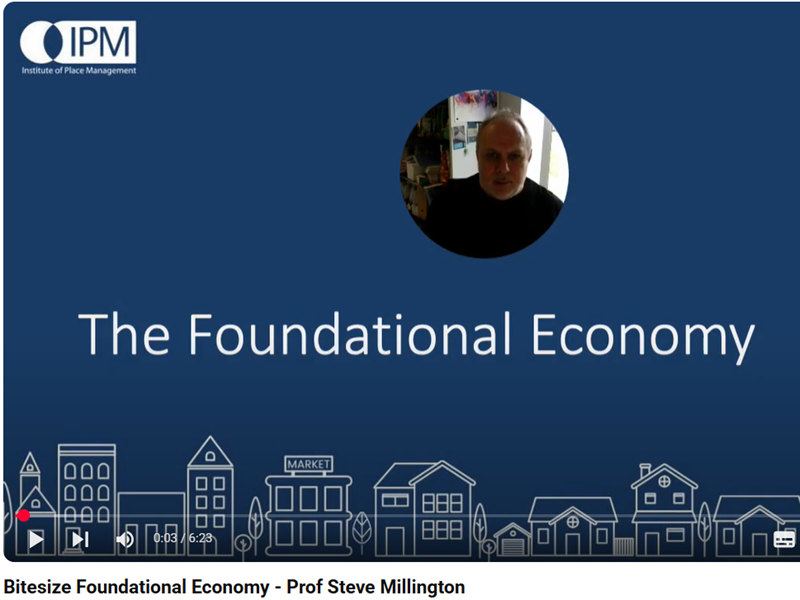Rethinking Economic Development: Why the Foundational Economy Matters

As the Institute of Place Management prepares for its upcoming Masterclass on Place and Economic Development this September, Professor Steve Millington is encouraging place managers to refocus attention on a critical but often overlooked concept: the foundational economy.
In a new bitesize 6-minute video, now available in the IPM Members Area, Professor Millington explains how the foundational economy refers to the essential goods and services that underpin everyday life - those consumed by everyone, regardless of income or background. These sectors are often taken for granted, but they are vital to the resilience, equity, and sustainability of local places.
With four in ten UK jobs falling within the foundational economy and accounting for £1 in every £3 of consumer spending, its scale is undeniable. Yet despite its importance, this part of the economy remains under-represented in national and local policy.
Drawing on his work with the High Streets Task Force, Professor Millington notes that local communities rarely call for major regeneration projects. Instead, their concerns tend to focus on the loss of everyday essentials - the closure of shops, banks, post offices, and reduced access to public transport.
In many places, years of disinvestment have left the foundational economy as the only economy. In some cases, even this is under strain - evidenced by the growing reliance on food banks and the emergence of food deserts.
The foundational economy is a key topic in IPM’s Postgraduate Diploma and MSc in Place Management and Leadership, and will be explored further in the upcoming Masterclass on Place and Economic Development in September 2025.
This session will equip place managers with practical tools and real-world insights, including:
- How to understand what a “good economy” looks like
- How to diagnose local economic conditions
- How to work effectively with anchor institutions
- How to deliver inclusive, place-based growth strategies
IPM members can access the Foundation Economy video in our members area here.
Register your interest in attending the Masterclass by contacting Rachel Nickeas: r.nickeas@mmu.ac.uk
The foundational economy directly supports the UN Sustainable Development Goals by promoting inclusive employment (SDG 8), reducing inequalities (SDG 10), ensuring access to essential services like health, education, and transport (SDGs 3, 4, 9), and strengthening sustainable, resilient communities (SDG 11). It prioritises local needs, equity, and long-term place-based development.
